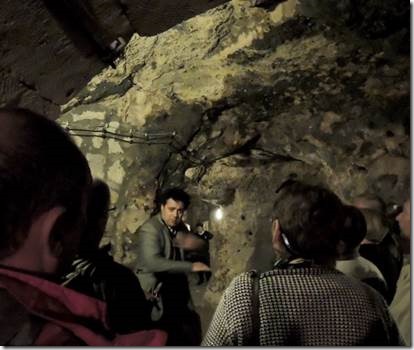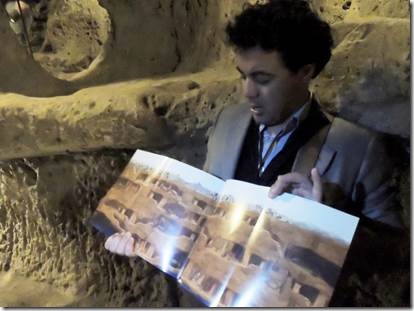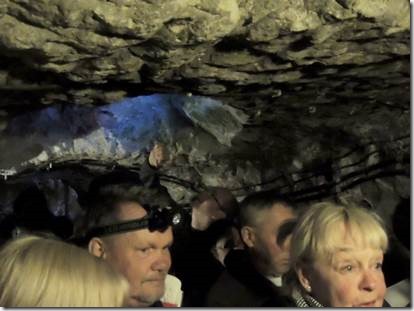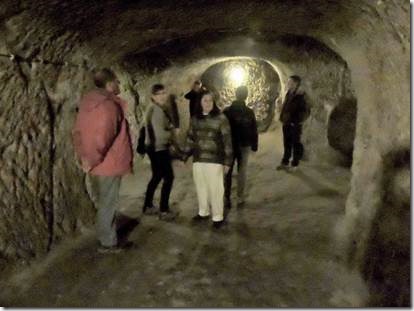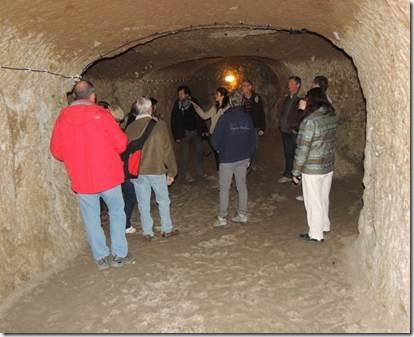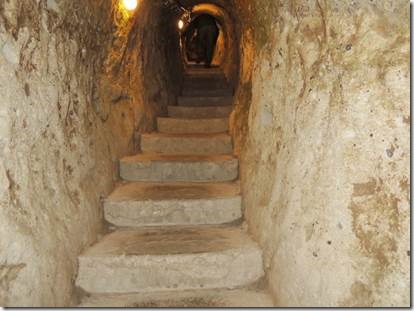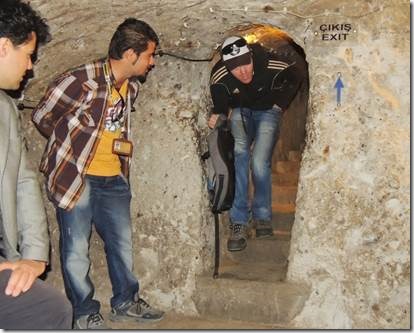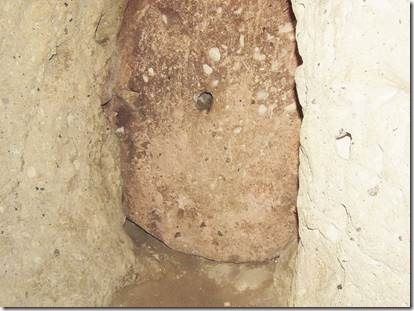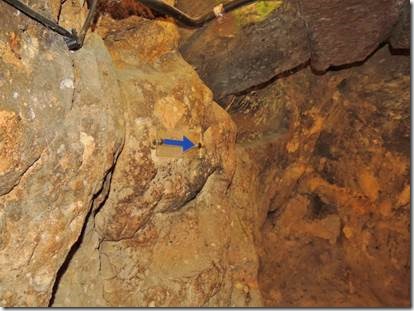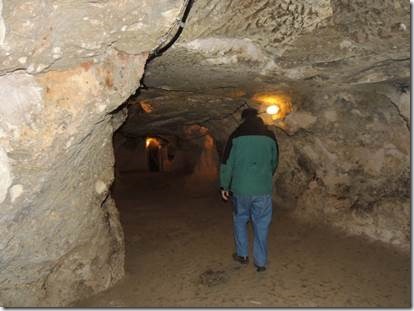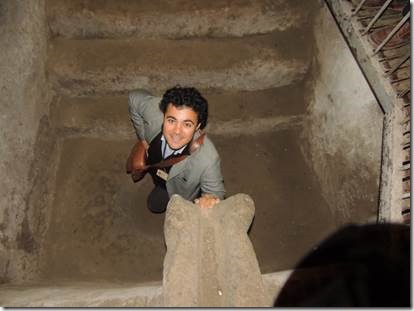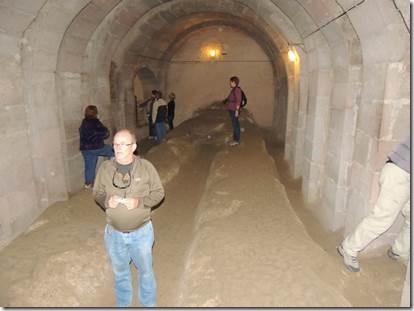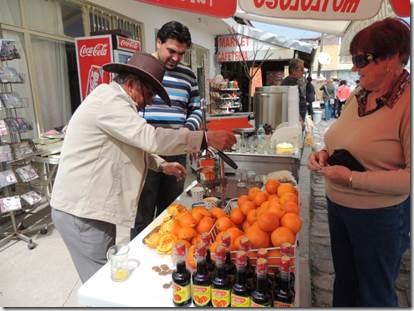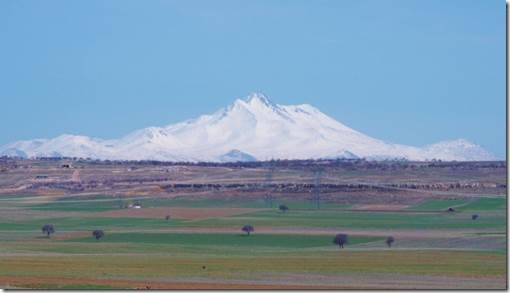Merhaba,
At some point the last cloud over Marmaris will fade away and the rain will stop for months. But not yet. Every day I write a bit about Cappadocia and in the evening I watch several episodes of West Wing. My dreams are very strange.
Ru
Derinkuyu
“Spreading over a huge base of 15,000 square meters, the subterranean complex features 8 floors to a depth of 55 meters…. Scholarly studies suggest that the uppermost level had been excavated between 1750 and 2000 BC.” Cappadocia by M. Ali Birant
.
“Some believe that Derinkuyu was first built around 800 BC by the Phrygians with others attributing the city’s origin to the Hittites who may have built this in 1000 BC or earlier. As noted by David Wilcock, the city’s origins may be even earlier and related to the ancient Persian Zoroastrian tradition. Giorgio A. Tsoukalos notes that in the ancient Zoroastrian Vendidad, legends exist of how Ahura-Mazda (the single ominipotent god of the Zoroastrians) instructed Yima to build an underground refuge very similar to that seen in Derinkuyu.” (This link has a 10 minute History Channel segment though it seems to want to connect the underground world to aliens……but the video part does show what the caves look like.)
|
Our guide Taṣ leading us through the caves. I thought it would bother me going underground in a country with active earthquakes, but you really don’t think about it. |
|
Taṣ showing us the layout of the caves. |
|
Most of the time there was headroom and often there were rooms large enough for small groups as this was a functioning underground city complete with stables for their animals. |
|
This was about how bright it was and I can’t imagine living there for days. |
|
This is with a flash |
|
A stairway between levels |
|
The stairways were tiny to prevent combat if invaders were coming in. I had to walk bent over up and down these stairs. |
|
Huge round slabs could be rolled into place to prevent enemies from entering as somehow because of the narrowness of the passage they couldn’t be rolled back. |
|
For those without guides there were blue arrows to follow so you could find your way out. |
|
Randal walking along one of the wider passageways |
|
This was a well and there were air shafts everywhere. In the beginning of the History Channel they talk about the amazing engineering feat this was to allow enough air for more than 1,000 people and to leave enough stone to prevent collapse. I think I remember Taṣ saying that water had to be carried in which would make sense so the enemy couldn’t just poison your well from above. |
|
A dining room for the monks with student “cells” off to the sides. This is also with a flash; it was mostly pretty dark in the caves. |
|
When we emerged from the caves everyone opted for some fresh squeezed orange juice! |
|
Driving to our next stop, Soḡanli Valley we passed the Taurus Mountain Peak in the distance. Not sure if it’s Mount Hasan or Mount Ereiyes (ancient Mount Argaeus, 12,852 feet [3,917 metres]). |
|
I’m stopping here because I took dozens of photos at our next stop which just might be my favorite; Soḡanli Valley |

